#louisa may alcott
Explore tagged Tumblr posts
Text

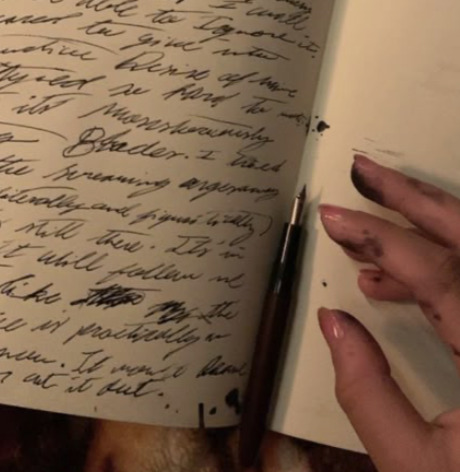


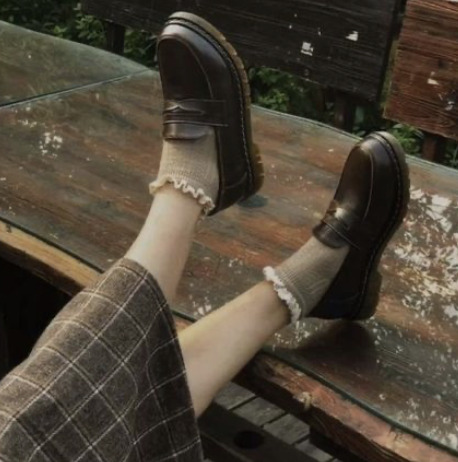



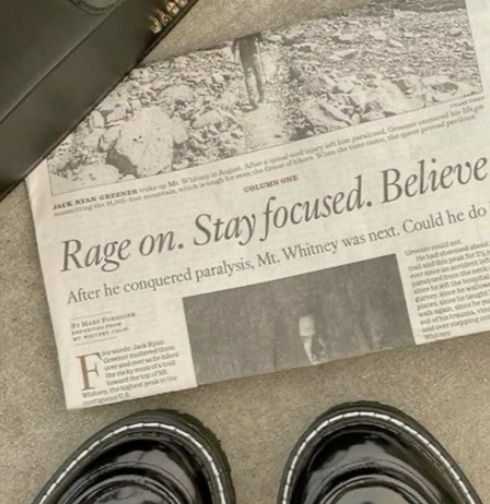
"I want to be great, or nothing" - jo march ⋆𐙚₊˚⊹
#jo#jo march#little women#academia#dark academia#light academia#classic academia#chaotic academia#romantic academia#romance#love#louisa may alcott#moodboard#aesthetic#pinterest#pinterest moodboard#reading#books#aesthetic moodboard#comfort character#beth march#meg march#amy march#cozy#vintage#beauty#photography#writing#art#journaling
32 notes
·
View notes
Text

#bsd#digital art#bungou stray dogs#louisa may allcott bsd#bsd louisa may alcott#louisa bsd#louisa may alcott
23 notes
·
View notes
Text



LITTLE WOMEN (1994) dir. GILLIAN ARMSTRONG
#perioddramaedit#little women#little women 1994#louisa may alcott#weloveperioddrama#filmedit#littlewomenedit#periodedit#perioddramacentral#jo march#winona ryder#kirsten dunst#userbbelcher#filmgifs#chewieblog#adaptationsdaily#cinemapix#cinematv#period drama#*gifs#*gifset#userrias#userrias gifs#nostalgiatvdaily
790 notes
·
View notes
Text
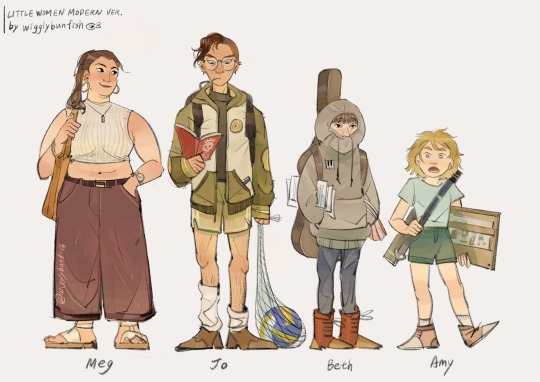
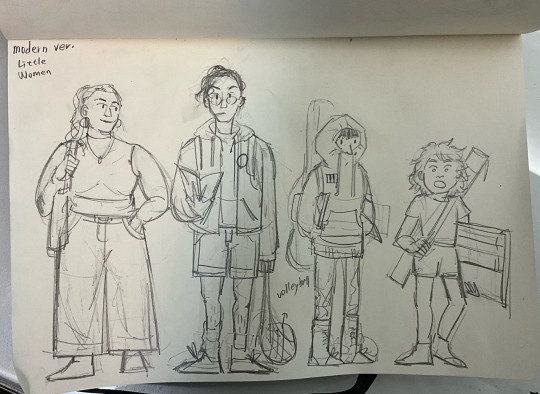
Been rereading Little Women recently... or technically, properly reading it for the first time. The last time I touched this book was when I was ten, and the book I touched was a shortened chinese edition (or was it just the first half? anyway) Here are the sisters in 21 century post covid and I think Beth would've loved the groundbreaking invention that is the Hoodie
#i know she plays the piano guys. i read the book#just need to give her smth to carry and decided fuck it my girl knows her strings. piano is part string certainly this isn't a stretch#<- just didn't want to draw keys#behold. you can't tell me jo wouldn't jump at the chance to hack her hair off. she's dyke now deal with it#jo is also a jocky nerd btw#amy's stuff is just what i carry on a weekly basis. go amy#me adding jewelry to meg's fit: heeheehoohoo#art#illustration#character design#artist on tumblr#little women#louisa may alcott#little women fanart#character illustration#character art#meg march#jo march#beth march#amy march#wigglybunfish
987 notes
·
View notes
Text
Movie of a centuries-old novel: since the novel has ProBlEmaAtIc elements, we will rewrite it to make it more appealing for our modern audience!
Me: then how did you end up being even less progressive and feminist than the original source? And you missed the point the author was trying to make too!
Movie of a centuries-old novel: we have sassy and tomboyish female characters, what are you talking about?
#you know what I am talking about#dracula#bram stoker#Jane Austen#Mansfield park#persuasion#Louisa may Alcott#little women#crack but also text#I could go on
500 notes
·
View notes
Text






LITTLE WOMEN (1994)
dir. gillian armstrong
#little women 1994#louisa may alcott#costume drama#period drama#perioddramaedit#perioddramagif#onlyperioddramas#perioddramasource#weloveperioddrama#filmtvdaily#christmas#movieedit#moviegifs#filmgifs#filmedit#jo march#amy march#beth march#meg march#winona ryder#kirsten dunst#claire danes#trini alvarado#my gifs#mine
420 notes
·
View notes
Text

#oh to read these books for the first time again#little women#louisa may alcott#anne of green gables#l.m. montgomery#children's books#classic literature#books#booklr#reading#bookish#bibliophile#library#libraries#tflo#aogg#librarians
467 notes
·
View notes
Text
"Some books are so familiar that reading them is like being home again."
― Louisa May Alcott
#quote of the week#quote#quotations#on books#on reading#Louisa May Alcott#read#reading#reader#book blog#book blogger#Features#readers of tumblr#booklr#bookish#bookworm#book community#booklover#bookaholic#books
2K notes
·
View notes
Text
The March Sisters 📚
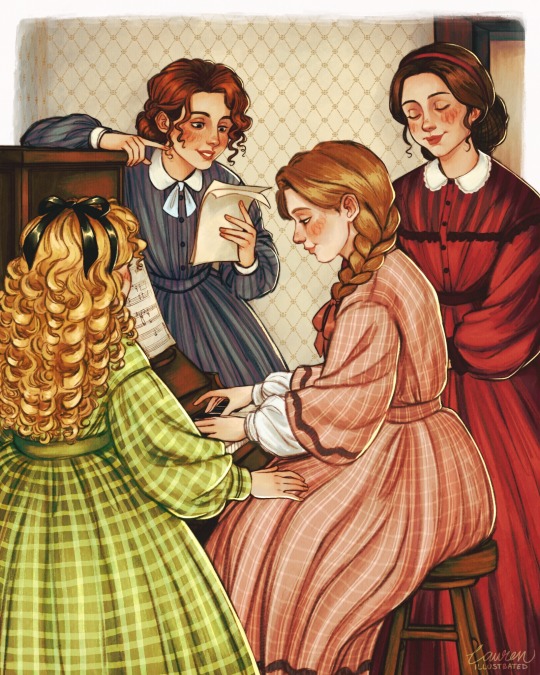
Little Women illustration based on the book!
#little women#little women book#louisa may alcott#jo march#meg march#beth march#amy march#book illustration#book illustrations#character illustration#childrens illustration#childrens literature#character art#drawing#digital drawing#illustration#digital art#illustrator#character design#drawing illustration#illustration art
3K notes
·
View notes
Text
As I've read different people's views on Little Women, I've realized that for different readers, it's a fundamentally different book.
When I see someone describe the "universal" experiences of identifying with Jo, wanting her to marry Laurie, and disliking Amy, I remember all the proof I've seen that these are far from universal. The latter two weren't even my experiences: identifying with Jo, yes, but shipping her with Laurie and disliking Amy, no!
Even people with equal amounts of knowledge of the historical context and of Louisa May Alcott's life seem to come away with vastly different feelings about the story and characters.
I suppose there are a wide variety of reasons for this. First and foremost, which of the four March sisters you personally admire or relate to the most. Then there are other factors like your gender, your age when you first read the book, your relationship (good or bad) with traditional femininity, whether you read Parts I and II as a single novel or as Little Women and Good Wives, your relationships with your own family members, your religion and ethical values...
The list goes on.
That post from @theevilanonblog that I reblogged recently about the different interpretations of Frankenstein makes me want to write out a similar list of ten different views I've read of Little Women. Here it is:
Little Women is about the March sisters learning to be proper virtuous women of their time and place. With Marmee as their role model (a role later shared by Beth as she becomes increasingly angelic in her illness), they learn to conquer their flaws, give up their wild ambitions, and settle down as good wives and mothers. This is especially true for Jo, whose character arc is a slow taming from a rough tomboy to a gentle nurturer. It's a conformist and anti-feminist message, which Alcott probably disliked, but she wrote it to cater to public tastes. (This reading seems mainly to come from critics who dislike the book.)
Little Women is about Jo's struggle to stay true to herself in a world that wants to change her. She struggles with whether to stay a tomboy or become a proper lady, whether or not to marry Laurie despite not loving him romantically, and as an author, whether to write what she wants, write what earns the most money, or give up her writing altogether. In the end, she changes only in ways that make her happy, e.g. by learning to control her temper, and later by embracing romantic love. But in more important ways, she stays true to herself: always remaining slightly rugged, clumsy and "masculine," finding success as a writer, and marrying Friedrich, a man just as plain and "unromantic" as herself, but whom she loves and who respects her as an equal.
Little Women is about learning to "live for others." That phrase is used often and could well be the arc words. Beth is the only March sister to whom a selfless life comes naturally, but the other three master it by the end of the story (as does Laurie). They learn to conquer their moments of pettiness and selfishness, to live in better harmony with each other and with their friends and love interests, and to give up their self-centered dreams of fame and wealth, building lives that focus on service instead.
Little Women is about growing up. The first half is mainly about the March girls' maturing by surviving hard times and learning to be better people, while the second half is about reaching adulthood and bittersweetly parting ways to start new lives. At the beginning, Jo is a girl who doesn't want to grow up: she wants to always be a wild young tomboy with her family (and Laurie) by her side forever. But of course, she can't stop time or womanhood, and is eventually forced to accept the loss of Meg, Amy, and Laurie to marriage and Beth to death. After grieving for a while, she lets go of her old life and willingly builds a new one with Friedrich.
Little Women is about family bonds and the fear of losing them. We meet and become attached to the wonderfully close, cozy March family, which gradually expands through friendships, marriage, and new babies. But throughout the story, the family is in danger of breaking apart, whether due to conflict (Jo and Amy's sibling rivalry, Meg and John's marital problems), or separation by distance (Father going away to war, Amy going to Europe, Jo to New York), or death (the danger of losing Father and Beth in Part I, and the ultimate loss of Beth in Part II). But in the end – unlike in reading #4 above – the family doesn't break apart and never will. Conflicts are resolved, travelers eventually come home, the surviving family members always live near each other and stay as close as ever, and even Beth isn't really gone, because her memory and influence live on.
Little Women is about femininity and each March sister's relationship with it. Meg and Amy happily conform in different ways: Meg to "domestic femininity" as a housewife, Amy to "ornamental femininity" as a society lady. Beth pressures herself to conform to self-effacing domestic femininity, until sadly, it kills her – either because she's too selfless and nurturing when she cares for the fever-infected Hummels, or because she has anorexia, as Lizzie Alcott might have had. But Jo strikes a successful balance in the end, conforming just enough to fit into society, but only on her own terms, and otherwise living a happily unconventional life as a writer and schoolmistress.
Little Women is about Jo's unlearning of internalized misogyny. At the beginning, she's a "Not Like Other Girls" tomboy, who wishes she were male, disdains feminine girls (especially her sister Amy), doesn't care enough when "her boy" Laurie behaves badly toward women, and is afraid to be vulnerable. But gradually, and without losing her strength of character, she learns to embrace the sweeter and more tender aspects of herself, sees that Amy's ladylike manners have practical benefits, and learns to say "no" to Laurie when he turns his childish, unhealthy romantic attentions to her. Then after Beth dies, she realizes how precious Beth's utterly domestic, feminine life was, and embraces a more domestic life herself. Yet by doing so, she becomes a true feminist, as she enters an egalitarian marriage and devotes her life to teaching boys to be good, respectful men.
Little Women is only what US Americans know as the first half. It's just about the March sisters getting by and learning moral lessons over the course of the year their father is away at war. Nobody gets married and nobody dies. Everything else is in Good Wives, which is a sequel with different character arcs and different themes, and which should be published separately, as it originally was and still is outside the US. Trying to tie them together into one narrative never feels quite right.
Little Women is Alcott's idealized version of her own life and family, where no one suffers quite as much as they did in real life, everyone is slightly less flawed, and Jo ends up happily married to a man very much like Alcott's lost love Henry David Thoreau. She wrote the life she wished she had.
Little Women is just a semi-autobiographical slice-of-life that Alcott wrote quickly for money.
Which is the truest to Alcott's intent? I don't know. But while some of these readings I like better than others – and some of them I despise – I'd say they're all understandable and reasonably valid. Some aren't even mutually exclusive, but can be used together... although of course, other readings are mutually exclusive, like whether the story is feminist or anti-feminist, or whether the March family ultimately breaks apart or holds together. And they're all worth using as springboards for discussion.
Alcott wrote more books than she ever realized she did, because Little Women can be many different books to different people.
@littlewomenpodcast, @joandfriedrich, @thatscarletflycatcher, @fictionadventurer, @fandomsarefamily1966
533 notes
·
View notes
Text



He wanted Jo for his heroine, and called upon his memory to supply him with tender recollections and romantic visions of his love. But memory turned traitor, and as if possessed by the perverse spirit of the girl, would only recall Jo’s oddities, faults, and freaks. When he looked about him for another damsel to immortalize in melody, memory produced one with the most obliging readiness. This phantom wore many faces, but it always had golden hair, was enveloped in a diaphanous cloud, and floated airily before his mind’s eye in a pleasing chaos of roses, white ponies, and blue ribbons. - Louisa May Alcott, Little Women (1869)
391 notes
·
View notes
Text

Louisa May Alcott, Little Women
#quotes#literature#classic literature#louisa may alcott#little women#musings on love#musings on beauty
674 notes
·
View notes
Text

The humblest tasks get beautified if loving hands do them.
-- Louisa May Alcott
(Ribeauvillé, France)
#humble#colors#small house#louisa may alcott#travel photography#cottagecore#ribeauville#ribeauvillé#france#street photography#quote#peaceful#photography#flowers#beauty
352 notes
·
View notes
Text
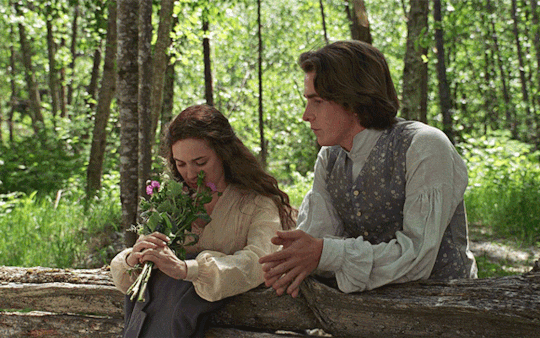
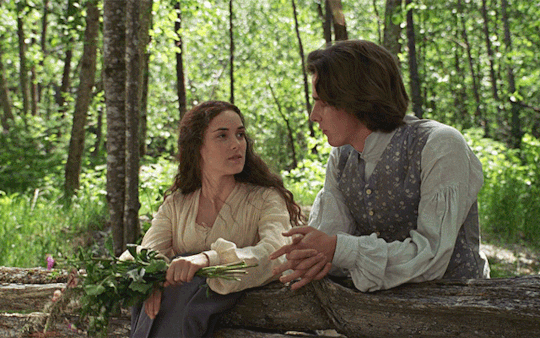

Winona Ryder and Christian Bale as Jo March and Theodore "Laurie" Laurence Little Women (1994) dir. Gillian Armstrong
#perioddramaedit#little women#little women 1994#louisa may alcott#weloveperioddrama#filmedit#littlewomenedit#periodedit#perioddramacentral#jo march#laurie laurence#jo x laurie#christian bale#winona ryder#userbbelcher#filmgifs#chewieblog#adaptationsdaily#cinemapix#cinematv#period drama#*gifs#*gifset#userrias#userrias gifs
1K notes
·
View notes
Text

Pretty women in pretty dresses ✨
#this was a need#my girls are so underrated#plus I'm developing a big huge crush on Agatha I'm going CRAZY#bungo stray dogs fanart#digital art#bungou gay dogs#bungou stray dogs#lucy maud montgomery#bsd lucy#louisa may alcott#bsd louisa#margaret mitchell#bsd margaret#agatha christie#bsd agatha#bsd girls
371 notes
·
View notes
Text





















i like bungou stray dogs now and i’m making it everyone else’s problem Part Two (part one)
#bsd#sunny made this#lots of dazai in this one. big fan of him i guess sorry#last one is probably sooo specific to me but i like those four a lot#kyouka izumi#akutagawa ryuunosuke#dazai osamu#chuuya nakahara#soukoku#yosano akiko#ranpo edogawa#jouno saigiku#mori ougai#fukuzawa yukichi#shibusawa tatsuhiko#shibuzai#? is that what its called#edgar allan poe#tetchou suehiro#bram stoker#odazai#kunikida doppo#kunikidazai#atsushi nakajima#nikolai gogol#fyolai#tanizaki junichirou#kyusaku yumeno#louisa may alcott#bungou stray dogs
389 notes
·
View notes